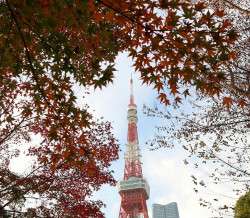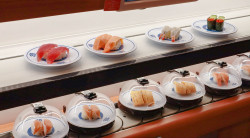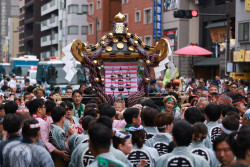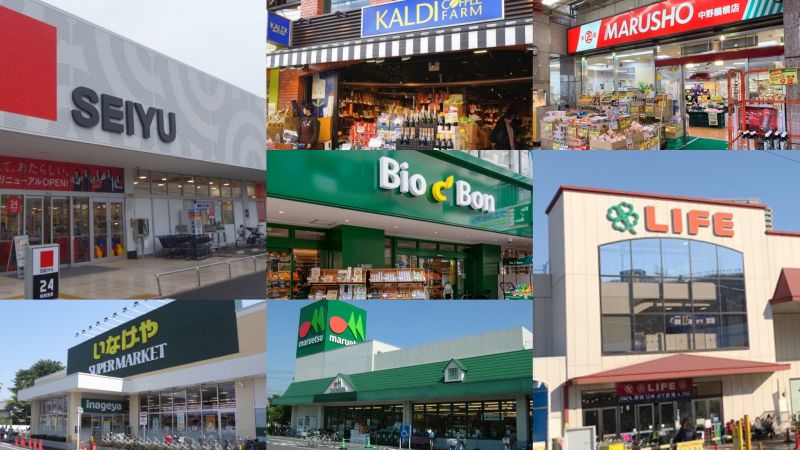
August 27, 2020
Conquer the Supermarket Game
A comprehensive guide to shopping smarter in Tokyo
By Mao Shiotsu
When it comes to groceries, Tokyo locals often just shop at the supermarket that’s closest to their home. But varying store choice according to your shopping list means you’ll be able to eat better food while spending less. Here’s a guide to some of the major Japanese supermarket chains to get you started on the path to becoming a master grocery shopper.
Seiyu
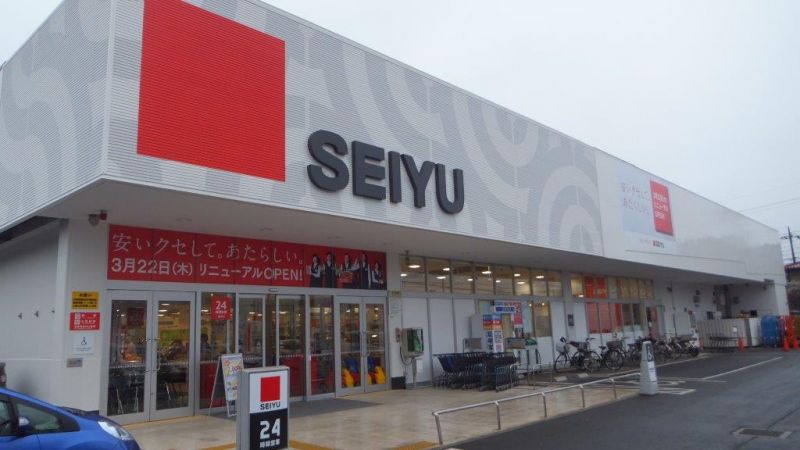
Pros: Varied and affordable meat options. You’ll probably find what you need, whether that’s domestically farmed pork loin or Aussie beef chuck. Seiyu also has a good selection of fresh and affordable fruits, including kiwi imported from New Zealand and green grapes from Mexico.
Cons: Limited variety of manufactured foods and foreign products. You won’t get to pick between twelve tofu options or find top-quality funghi porcini hailing from a mountainside town in Italy, but for most home cooks, Seiyu will do the job.
Price: ¥
Availability: Easy to find
Website: seiyu.co.jp
Inageya
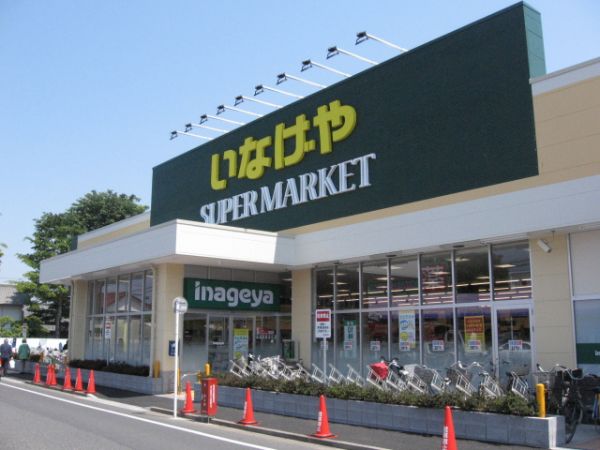
Pros: Large lineup of both fresh and manufactured products. The cheese selection is surprisingly extensive for a Japanese supermarket, carrying cheeses like mature Gorgonzola and brie. Inageya also carries a few kitchen essentials, like pots and cooking utensils. There’s an impressive deli section displaying packaged meals ranging from salads to dumplings.
Cons: The variety of chocolates is perhaps the one area where Inageya falls short. The selection is very limited, with no sign of Lindt, Ghirardelli or Cadbury in the aisle.
Price: ¥
Availability: Easy to find
Website: inageya.co.jp
Maruetsu
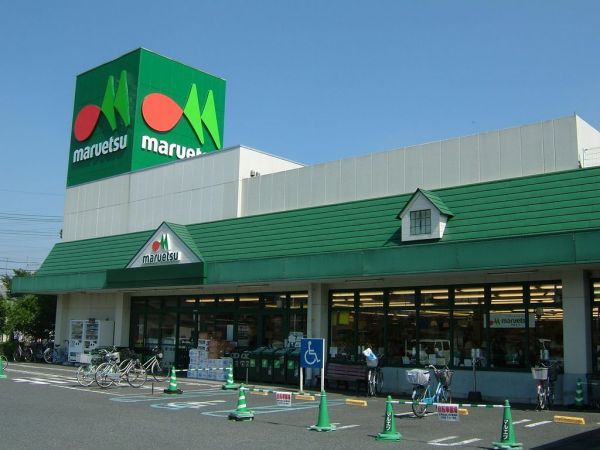
Pros: Large array of manufactured products like canned beans and snack foods. In fact, most of the supermarket is taken up by manufactured food aisles. Some of these products are imported, like the selection of Johnsonville sausages.
Cons: Limited variety of fruits and vegetables which are, at times, not the freshest. Meat and fish selections are also limited.
Price: ¥
Availability: Easy to find
Website: maruestu.co.jp
LIFE

Pros: Extensive variety of both fresh and manufactured products. The foreign food aisle is better stocked than many other large Japanese supermarket chains, lined with goods like jars of pasta sauce by the Italian company Barilla, and cartons of Almond Breeze.
Cons: Because the supermarket spans a large area, it might take you some time to complete your shopping and get to the cashier, and you’ll probably end up with more in your cart than you intended to buy.
Price: ¥
Availability: Easy to find
Website: lifecorp.jp
Marusho
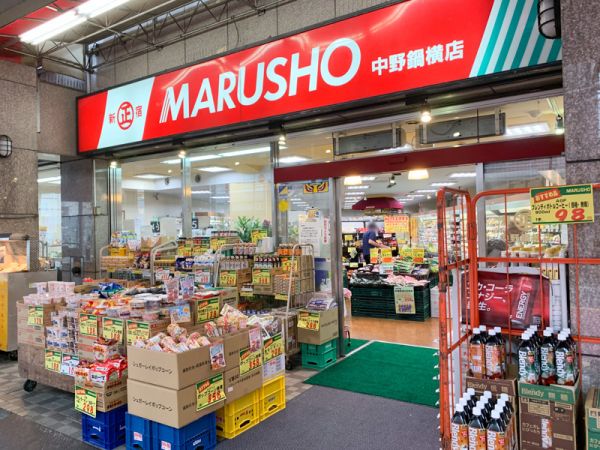
Pros: Well-stocked seafood section. Everyday, different types and cuts of fresh fish grace the Marusho shelves, so navigating the seafood aisle is an adventure. You won’t know whether dinner will be rockfish or blackthroat seaperch until you get to the supermarket. The size of the store is on the smaller side — convenient for a quick shop.
Cons: Limited variety of fresh produce, a lot of which are produced domestically, so prices tend to be more expensive.
Price: ¥
Availability: Not widely available. Seven stores in Tokyo.
Website: marusho-chain.jp
Gyomu Supermarket
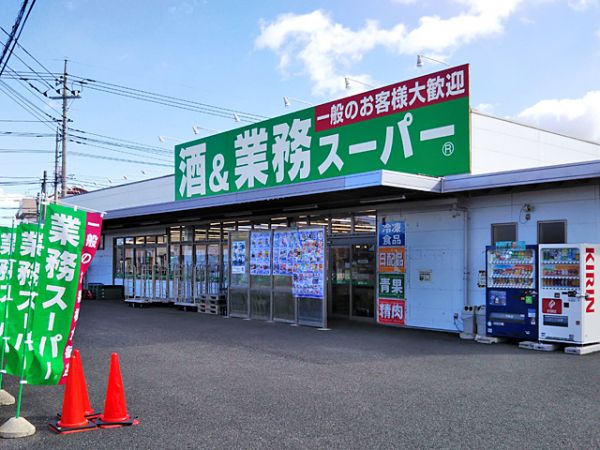
Pros: Imported goods at an affordable price. The selection of products include frozen raspberries from Serbia, olives from Italy and giant 400 gram chocolate bars from Belgium. You can also find Japanese household products like rice vinegar and sugar for low prices.
Cons: The fruit and vegetable section is very small and often not fresh. The meat selection is similarly limited, and the supermarket does not carry fresh fish.
Price: ¥
Availability: Relatively easy to find
Website: gyomusuper.jp
KALDI
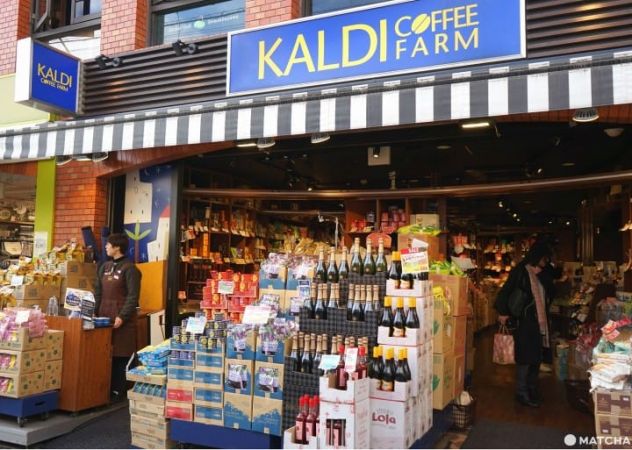
Pros: A convenient go-to spot for sourcing basic foreign products like Italian olives or Thai jasmine rice. The baking section is well-stocked, carrying ingredients like marshmallow fluff, Italian ladyfingers and American pumpkin puree.
Cons: KALDI stores are really cramped, and although they do carry a variety of products, there’s only a limited selection of each.
Price: ¥¥
Availability: Easy to find.
Website: kaldi.co.jp
Carnival
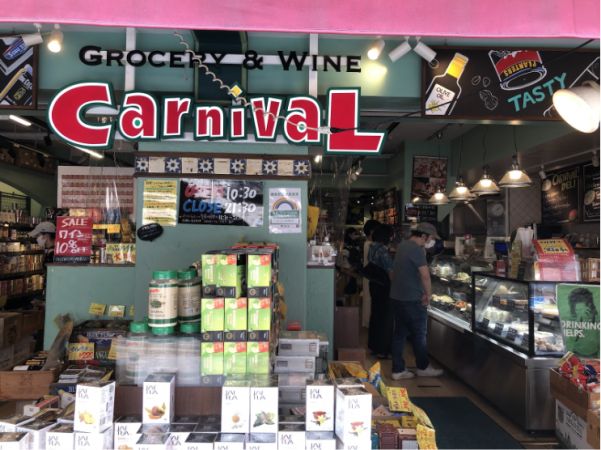
Pros: Good selection of imported products, with an especially impressive variety of nuts, dried fruits and muesli. Carnival’s best attribute is its deli, where you can get a delicious warm bento for around ¥500.
Cons: Because Carnival is a relatively small brand, products tend to be quite expensive. Additionally, the supermarket doesn’t carry fresh produce.
Price: ¥¥
Availability: Not widely available. Five stores in Tokyo.
Bio C Bon
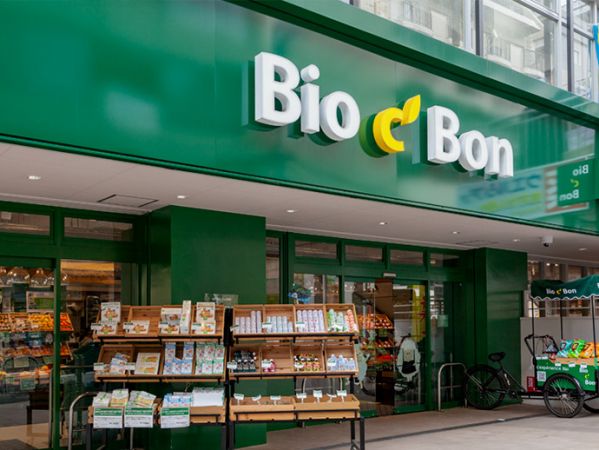
Pros: Carries an organic option for almost every product. You’ll also find a lot of French imported food like crackers, as well as many vegan products, which are both relatively difficult to come by in Japan. The best part of Bio C Bon, though, is the section lined with large jars of nuts, dried fruits and superfoods, which you can shovel into a bag and pay for by weight.
Cons: All the products are expensive compared to most other supermarkets. You can find organic fruits and vegetables, but these are also pricey.
Price: ¥¥¥
Availability: Not widely available. 14 stores in Tokyo.
Website: bio-c-bon.jp
Picard

Pros: Wide selection of frozen French food, including croissants, soups and seafood dishes. According to one Tokyo-residing Frenchman we know, Picard has the best French food in the city.
Cons: The store does not sell anything other than frozen French food.
Price: ¥¥
Availability: Not widely available. 12 stores in Tokyo.
Website: picard-frozen.jp

